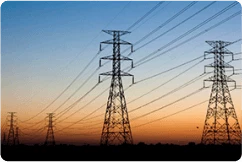100% Secure Payments
Tender Details
- Country: Rwanda
- Summary: Perform Needs Assessment and Data Mapping for Rwanda's Integrated Green Finance Information System
- RWT Ref No: 96390515
- Deadline: 20 Feb 2024
- Competition: ICB
- Financier: Deutsche Gesellschaft für Internationale Zusammenarbeit (GIZ)
- Purchaser Ownership: Public
- Tender Value: Refer Document
- Notice Type: Tender
- Document Ref. No.: 83459172
- Purchaser's Detail :
- Description :
- Expression of Interest are invited for Perform Needs Assessment and Data Mapping for Rwanda's Integrated Green Finance Information System. Location: Kigali Deadline: Tuesday, 20/02/2024 23:59 Expression of Interest (EOI) Perform Needs Assessment and Data Mapping for Rwanda's Integrated Green Finance Information System. Reference Number: 83459172 Publication date: 05.02.2024 Introduction The Deutsche Gesellschaft für Internationale Zusammenarbeit (GIZ) GmbH is a federally owned international cooperation enterprise for sustainable development with worldwide operations. The GIZ Office in Kigali covers GIZ-s portfolio in Rwanda and Burundi. GIZ Rwanda/Burundi implements projects on behalf of the German Federal Ministry for Economic Cooperation and Development, the European Union and other commissioning authorities in the following priority areas: Sustainable Economic Development; Good Governance; Climate, Energy and Sustainable Urban Development; Digitalization and Digital Economy; and regional projects in the Great Lakes Region. 1. Context Introduction The Deutsche Gesellschaft für Internationale Zusammenarbeit (GIZ) GmbH is a federally owned international cooperation enterprise for sustainable development with worldwide operations. GIZ has worked in Rwanda for over 30 years. The primary objectives of cooperation between the Government of Rwanda and the Federal Republic of Germany are poverty reduction and promotion of sustainable development. To achieve these objectives, GIZ Rwanda is active in the following areas: Training and Sustainable Growth for Decent Jobs; Climate and Energy; Digitalization and Digital Economy; Mineral Governance and Burundi; and Good Governance. About Digital Cluster and the Digital Transformation Center Rwanda The Digital Cluster is a Rwandan-German initiative to develop impact-driven digital solutions at regional and continental levels in Africa. Therefore, it not only provides advisory services and training for government institutions and local tech companies but also a modern space to boost creativity and collaboration. The Digital Transformation Center is a space dedicated to delivering impact-driven digital solutions, developing the capacities of the local innovation ecosystem, and replicating and scaling up digital solutions at the regional and continental levels. The implementation of innovation at the Digital Transformation Center is in collaboration with the Ministry of ICT-s implementing agency, the Rwanda Information Society Authority (RISA). The Digital Transformation Center supports both the public and the private sectors in transferring knowledge and skills and developing organizational, structural, and technological capacities. The Digital Transformation Center is now organized in various topics called Verticals for orientation, and proper collaboration with partners and the Rwandan ICT ecosystem and these verticals are collectively known as the GIZ Digital Cluster. These verticals include Public Sector Innovation The public sector innovation vertical is where the government, civil society and private sector all intersect to work together in developing digital solutions and innovation around the challenges experienced in the public sector. In this vertical, the demand is set through a series of collaborations from the government, mainly from the Chief Digital Officers of every sector, The Rwanda Information Society Authority RISA and the Ministry of ICT and Innovation and many other implementing agencies to work together. The solutions developed under the Public Sector innovation vertical revolve around digitization, change management, ICT building blocks, UN Sustainable Development Goals, Smart cities, and efficient delivery of Government services. Digital Inclusion & Literacy The Digital Cluster is actively involved in capacity-building and digital literacy, targeting people in rural areas, women and people with disabilities, ICT professionals, tech startups and employees of political partner agencies. The Digital Inclusion and Literacy vertical works together with several civil society organizations, The Ministry of ICT and Rwanda Information Society Authority RISA to implement joint programs that bridge the skills gap for both public servants and citizens to create an environment conducive to digital transformation and adoption of digital skills for economic development and improved livelihoods. Startup Ecosystem Support The Digital Cluster supports young entrepreneurs and startups through incubator and accelerator programs to build and expand their businesses. These programs provide access to mentorship, funding, and resources to help young entrepreneurs overcome the challenges of starting a business. By fostering collaboration and innovation, these initiatives are helping to create a thriving ecosystem for young entrepreneurs to succeed in today's competitive marketplace. Artificial Intelligence Hub (AI Hub) and data Most of the digitalization efforts, both private and public, rely on data and insights into that data. The AI hub vertical works around Improving access to training data and AI technologies for local open innovation, strengthening local technical know-how on AI in Rwanda, Develop Policy Frameworks Ready for AI - Ethical AI, Data Protection and Privacy, and one of the biggest topics in AI under the AI hub is Machine translation. The Macroeconomic and Investment Policies Project The Macroeconomic Investment Policies project, as part of the Good Governance Cluster aims at strengthening individual and institutional capacities for economic analyses and evidence-based policymaking. The project has five interlinked ‘support areas-: (1) Planning and implementation of public investments; (2) Macroeconomic modelling; (3) Promoting evidence-based fiscal policy; (4) Improving research-based higher education and strengthening research and political dialogue, and (5) Supporting the implementation of the Rwandan Sustainable Finance Roadmap. The Ministry of Finance and Economic Planning (MINECOFIN) is MIP-s main counterpart Rwanda has a strong track record of mainstreaming climate commitments into its national plans and sectoral strategies. With one of the lowest per capita carbon emissions, Rwanda is highly vulnerable to climate change. Its exposure to disasters linked to natural hazards, such as heavy rainfall, flooding, and landslides, is expected to increase. The World Bank-s Country Climate and Development Report estimates that climate risks could reduce Rwanda-s GDP by 5-7 percent in multiple years by 2050, with a negative impact on private consumption, exports, and government revenues. Recognizing its vulnerability, Rwanda-s Green Growth and Climate Resilience Strategy (GGCRS), launched in 2011 and revised in 2023, is embedded in Rwanda-s long- and medium-term development plan, Vision 2050, and its National Strategy for Transformation (2017-24), as well as aligned with some sector strategies, such as agriculture, forestry, land use, urbanization, transport, energy, manufacturing technologies, and disaster risk reduction and management. Rwanda-s commitment to the 2015 Paris Agreement, the Nationally Determined Contribution (NDC), updated in 2020, sets the objective of reducing, by 2030, the greenhouse gas emissions by 38 percent relative to a business-as-usual baseline, primarily in agriculture, energy, and waste sectors. It estimates the climate-related investment needs between 2021 and 2030 at 11 billion USD (or around 7 percent of GDP per year), of which 40% is set to be financed from domestic resources, and the rest from external resources, including the private sector. The investment needed to implement the revised GGCRS is even estimated to be 2 billion USD annually. With the objective to overcome the impediments to private climate financing, such as small market size and high perceived risk for low-income countries, Rwanda Sustainable Finance Roadmap, launched in October 2022, defines key milestones to be achieved, through engagement of several institutions, to mobilize local, regional, and international sustainable finance to meet Rwanda-s strategic climate-related objectives. The roadmap, in addition, aims to establish Rwanda, through the Kigali International Finance Center, as a regional financial hub. Rwanda has adopted several initiatives to mobilize climate finance from different sources. It achieved direct access to the Adaptation Fund and the Green Climate Fund and established, in 2012, Green Fund (FONERWA) as a strategic basket fund for climate action. To date, FONERWA mobilized 247 million USD and funded 46 projects. It also provides training for public and private sectors and supports a national task force charged with climate finance mobilization for NDC implementation. On the side-lines of the UN Climate Change Conference (COP27), in November 2022, FONERWA and the Development Bank of Rwanda, together with a range of development partners, launched a 104 million USD Ireme Invest green investment facility to assist - through grants, concessional loans and credit guarantees - Rwanda-s private sector in accessing green financing and aligning it to the SDGs. In December 2022, the International Monetary Fund approved a 319 million USD Resilience and Sustainability Facility to support reforms that would integrate climate related considerations in the macroeconomic policies and frameworks, as well as the delivery and monitoring of Rwanda-s climate commitments. Earlier, in May 2022, the European Union committed to contribute, over the next four years, 30 percent of its 260 million USD envelope under the Multiannual Indicative Program to climate change goals. In 2022, Germany made 95 million EUR available for climate initiatives and sustainable urban development, in line with the Climate and Development Partnership, signed in March 2022, with the intention to p
- Documents :
Purchaser : DEUTSCHE GESELLSCHAFT FÜR INTERNATIONALE ZUSAMMENARBEIT
17 KN 41 St, Kigali, Rwanda
Phone: +250 252 573 537
Email :rw_quotation@giz.de
URL :https://www.giz.de/en/worldwide/332.html
If you are registered member, kindly login to view full details of this tender notice:
CLICK HERE TO LOGIN




